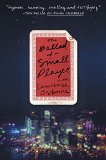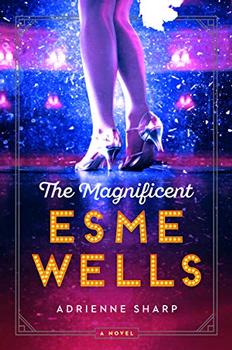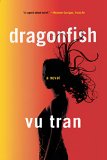Summary | Excerpt | Reviews | Beyond the book | Read-Alikes | Genres & Themes | Author Bio

In The Ballad of a Small Player, the dark and elegantly crafted second novel by Lawrence Osborne (following The Forgiven), readers experience the world of high-stakes gambling in Macau's glitziest casinos and glimpse the insatiable and desolate nature of addiction. The narrator, known as Lord Doyle, despite having no real claim to the noble title – is not a particularly sympathetic character. He is a morally bankrupt lawyer, guilty of embezzling hundreds of thousands of pounds from an aging woman placed in his financial care back home in England. When he realizes that he's close to getting caught, he takes the money and flees to Macau – the Chinese territory famous for its casinos and, what some may call, a superstitious worship of luck.
The story – a terribly lonely, but beautifully written first-person narrative – follows Lord Doyle through his timeless days gambling in Macau and pulls readers through the intense, often painful experience of watching someone lose it all and win it all over and over again. It becomes clear that, for Doyle, gambling isn't about the money; "Everyone knows you are not a real player until you secretly prefer losing." It's about the rush - the "sensual moment, empty but charged with anticipation. The mind emptying out like a drain, or else scurrying like a small, wingless bug."
Doyle's observations of those around him and his judgments about his own place in life are philosophical and surprisingly self-aware, despite his inability to control his compulsions. Osborne successfully creates a paradoxical world in which suspense and futility simultaneously exist, and readers are easily caught up in the dramatic poetry of it all. What seems to be lighthearted gamesmanship is a mask for cruel revenge, a winning streak can fuel virile rage, and losing everything is the faint whisper of freedom.
In addition to the strong, contemplative narrative, Osborne's sense of place makes The Ballad of a Small Player an outstanding novel. This book could not have taken place in the desert casinos of Las Vegas or Monaco's Monte Carlo. In Macau, ancient Chinese lore mingles with Western ideals – luck is a decision of the gods, and insatiable ghosts of the Buddhist afterlife are believed to walk among the living. Much like gambling addicts, "continually suffering from hunger and thirst, they cannot sate or slake either craving… For the Chinese the realm of the hungry ghosts is similar to Hell in the Christian world. Its inhabitants have mouths the size of needle eyes, and stomachs as large as caves."
In this way, the lines between reality and the supernatural are blurred, and when Doyle starts to lose himself, the book takes on an alluring, ghost story-like quality. Combined with the sensuous descriptions of Macau's wet, subtropical urban landscape, the book creates a visceral experience that is not to be missed.
The most intriguing character, Dao-Ming, seems to transcend the false and deceptive world of the casinos, despite her occupation as a prostitute. She sees through Lord Doyle's lies and desperation, and calmly chooses to help him, though she is not a completely warm and tender companion. She is emotionally impenetrable with a kind of quiet resolve that captivates – and later mystifies – readers.
Though at times the pacing of the novel feels slow, Lawrence Osborne's careful and thoughtful writing makes every moment worthwhile. He tiptoes between the concrete and supernatural, and creates an eerie reality for his characters that is both empty and sad, but certainly not without poetry. I recommend this book to readers who enjoy travel and rich imagery and to those who don't shy away from a slower-paced, dark, but intense internal narrative. It will be a quick read that you will want to start again as soon as you finish.
![]() This review was originally published in The BookBrowse Review in April 2014, and has been updated for the
January 2015 edition.
Click here to go to this issue.
This review was originally published in The BookBrowse Review in April 2014, and has been updated for the
January 2015 edition.
Click here to go to this issue.

If you liked The Ballad of a Small Player, try these:

by Adrienne Sharp
Published 2019
From the nationally bestselling author of The True Memoirs of Little K, a deeply felt and historically detailed novel of family, loss, and love, told by an irrepressible young girl - the daughter of a two-bit gangster and a movie showgirl - growing up in golden-age Hollywood and Las Vegas in its early days.

by Vu Tran
Published 2016
A thrilling and cinematic work of sophisticated suspense and haunting lyricism, set in motion by characters who can neither trust each other nor trust themselves.
Your guide toexceptional books
BookBrowse seeks out and recommends the best in contemporary fiction and nonfiction—books that not only engage and entertain but also deepen our understanding of ourselves and the world around us.